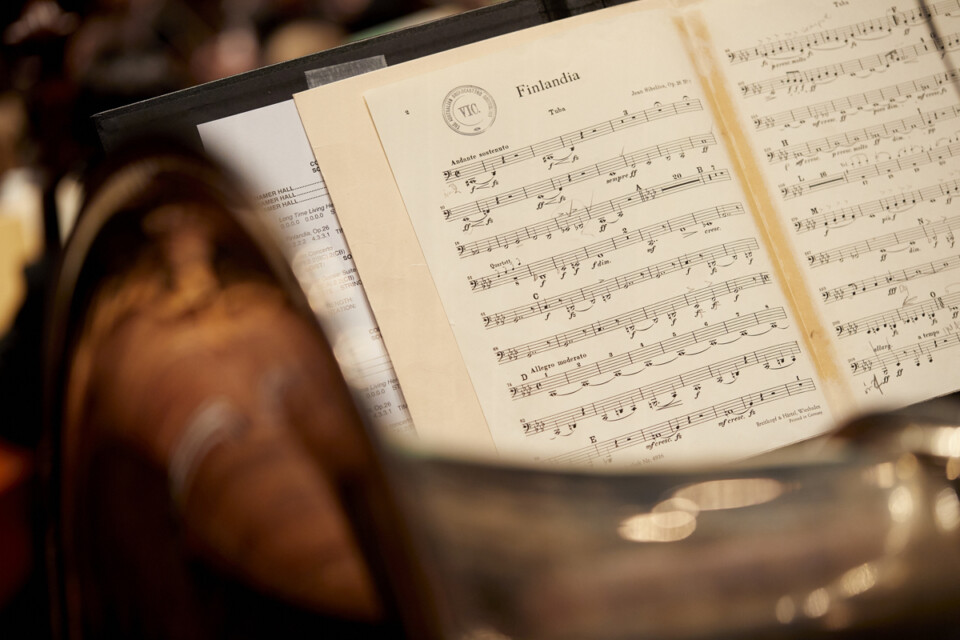We asked the four emerging composers who are part of our 2022 Cybec 21st Century Australian Composers Program to share the one piece of music that has influenced them throughout life. Discover the music that has imprinted upon them below.
Julia Potter
"I remember hearing the 2nd Movement of Beethoven’s 5th Symphony at a young age.
Mum used to put on classical music CDs for me and my siblings to listen to sleep. I loved a CD titled Beethoven Lives Upstairs. It told the story of Beethoven living in Vienna and featured excerpts of his work to aid the story telling.
I thought the 2nd Movement of the 5th Symphony was just the most beautiful thing I had ever heard! In particular, the moment when the strings have a running passage and the woodwinds sustain notes above. There are light pizzicato and staccato punctuations too, which keep the momentum. To me it felt just like a meandering river; the music ebbing and flowing with the string melody.
For my own music, I’ve always sought this level of unattainable beauty, this contour of melody with a degree of lightness and playfulness. Though I now look to more modern composers for influence, I will always listen back to Beethoven for a good dose of romantic music and nostalgia, and to remind me of how beautiful music has the potential to be."
Christopher Healey
"I have two works I always come back to when asked this question.
The first, Syzmanowski's Mythes for violin and piano was a work that my first composition teacher, Gerard Brophy, recommended to me, and it has been an inspiration to me as a composer ever since. As with so many of Syzmanowski's works, he manages to squeeze every last technical and timbral possibility out of the instrument, but does so to such profound musical ends; nothing is superfluous. In Mythes, the music is full of languorous melodies, fascinating harmonies, and one of the richest palettes of instrumental colour capable from the violin.
The second is Berio's Sinfonia, specifically the 3rd movement. The entire piece is a collage of dozens of works by other composers, with Berio's own contributions binding it all together. The result is something absolutely extraordinary. Crazy and chaotic, the work is tremendously compelling. The way in which the rich musical quotes of the various composers seem to emerge from and dissolve back into the tumultuous swirl of the work is extraordinary, and I somehow never tire of listening to it. It's like the musical equivalent of going white-water rafting, when you get to the end of the work, you can't help but heave a tremendous sigh of relief, but you do so with a huge grin on your face!"
Naomi Dodd
"When pondering a piece that has influenced me throughout my life it is hard to move past the works of Debussy.
As a teenager I loved playing pieces from Children’s Corner or Clair de Lune on piano and works such as Syrinx on flute. As I began composing in later high school, I discovered Debussy’s orchestral works and was enthralled. La Mer particularly influenced me as I began writing orchestral works. The variety of modal pitch material, unique motifs that are intertwined and re-contextualised throughout the work, extended, static, impressionistic harmonies, the subtle rhythms that mask metre and beat, the beautiful colours and textures created through Debussy’s masterful orchestration and the constantly moving and undulating music all create a perceptive and accurate aural depiction of the ocean.
This expert 'tone painting' transports listeners to the seaside when the music reaches their ears. I studied La Mer last year as I wrote my last orchestral work Deep Calls to Deep, which too was inspired by the ocean. The way Debussy so accurately captures the nature of sea through music, inspires me in my own writing to create works which throw open the doors of the listeners’ imagination, immersing them in an environment, idea, time or emotion. Debussy’s La Mer, which was so revolutionary at the time and all his works give me constant inspiration and remind me of the incredible possibilities and power of music."
Joseph Franklin
"That is one tough question! There have been—and continue to be—many musical interests and influences throughout my life. My first instrument was the cornet and at eight years of age my teacher introduced me to Mozart, Beethoven, Schumann and so on. In a very real way, writing for the MSO is fulfilling something that has been with me as far back as I can remember. Since then, my musical path has woven its way through many twists and turns: from punk, grunge, indie-rock, improvisation, jazz, Turkish classical, contemporary classical, experimental and noise music. In recent years, my music has been deeply influenced by non-western traditions such as Stambeli of Tunisia, Gnawa of Morocco and Hunter's Music of Mali—each of these feature a string bass instrument, which is also my primary musical tool. So in short, my answer would have to be Boubacar Diagne's Tabala Wolof - Sufi Drumming of Senegal. Listening to the interlocking rhythms, metric modulations and resonances of the sabar drums played by extraordinary musicians, is akin to dipping in the ocean: a continual reminder to explore deeper, embody the musical ideas and concepts that emerge through practice, and understand one's cartography in the (musical) world."
